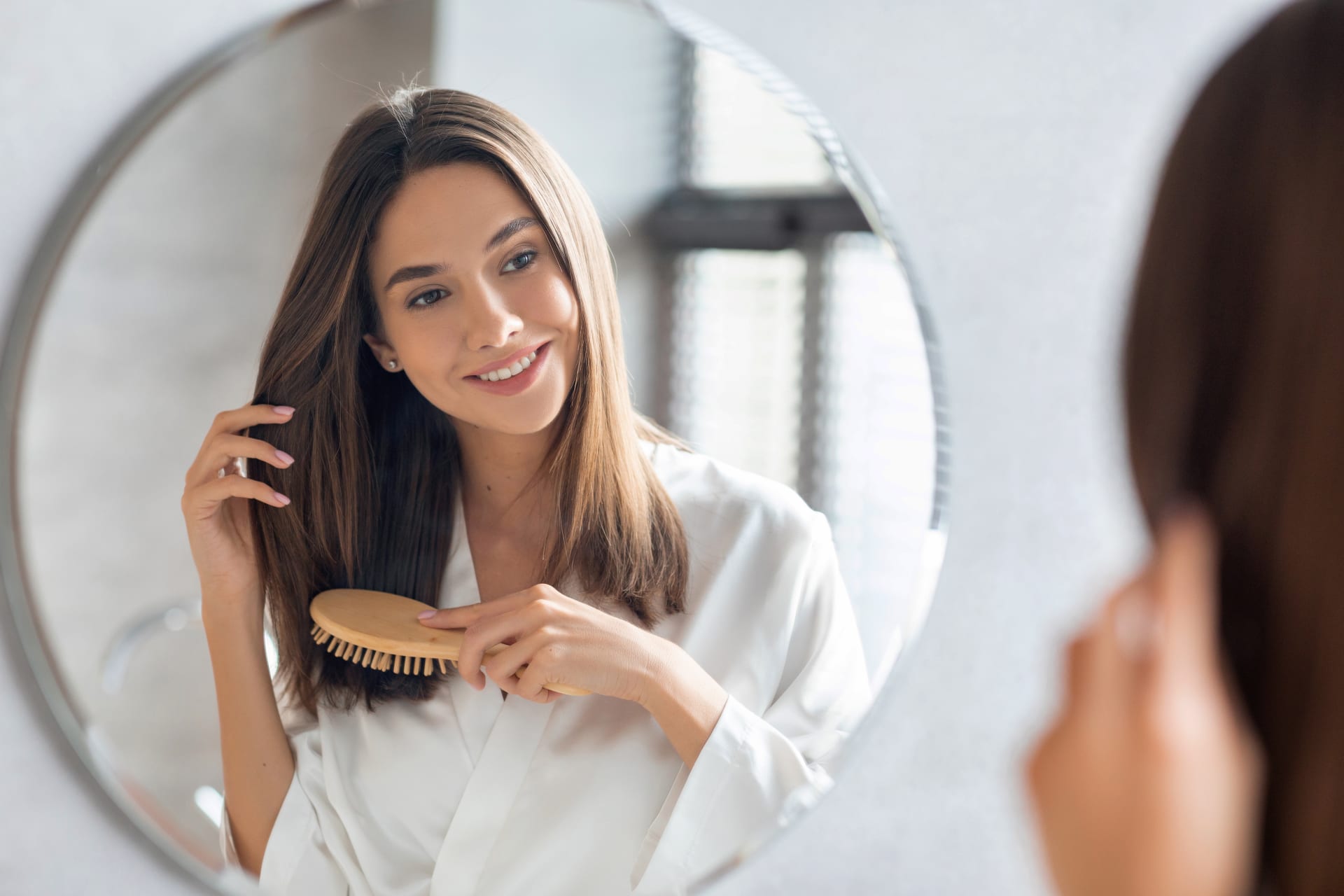Hair loss is a common concern that may affect people of all ages and genders. While it can be distressing, there are various strategies you can adopt to promote healthy hair growth. In this article, we'll explore how you can manage hair loss effectively.
Manage Stress
Normally, hair goes through a cycle of growth, transition, rest, and shedding. Stress can cause more hair follicles to enter the shedding phase prematurely, resulting in increased hair loss. For instance, if you are a punter who regularly bets at credit card bookmakers and experiences a lot of worry, it may be sufficient to trigger hair loss. In such cases, it is advisable to practice stress management techniques like meditation, yoga, or deep breathing exercises to reduce the impact of stress on your hair health.
Maintain a Balanced Diet
Growing long, healthy hair primarily depends on a balanced diet that provides the necessary nutrients for hair growth. While there isn't a single "miracle" food that guarantees long hair, here are some nutrient-rich foods that can support healthy hair growth:
Protein: Hair is primarily composed of a protein called keratin. Incorporate lean protein sources like chicken, turkey, fish, eggs, beans, lentils, and tofu into your diet.
Omega-3 Fatty Acids: These healthy fats are essential for scalp health and hair growth. Add fatty fish (salmon, mackerel, sardines), flaxseeds, chia seeds, and walnuts to your diet.
Biotin: Foods rich in biotin include eggs, nuts, sweet potatoes, and spinach.
Vitamin E: You can find vitamin E in foods like almonds, sunflower seeds, and spinach.
Vitamin A: Vitamin A supports the production of sebum, a natural hair conditioner. You can get it from sweet potatoes, carrots, and kale.
Iron: Consume iron-rich foods like lean meats, poultry, beans, lentils, and dark leafy greens.
Zinc: Oysters, nuts, and whole grains are zinc-rich foods.
Vitamin C: Enjoy citrus fruits, strawberries, and bell peppers for their vitamin C content.
Silica: Silica contributes to hair strength. Foods like oats, brown rice, and cucumbers are good sources of silica.
Collagen: Foods rich in collagen, like bone broth, can support hair growth and overall hair health.
Water: Staying hydrated is crucial for hair health.
Dairy: Low-fat dairy or fortified dairy alternatives can provide essential nutrients like calcium, protein, and vitamin D.
You can also consider taking supplements like biotin, zinc, and iron. Consult with a healthcare professional before adding them to your diet.
Drink herbal teas
Herbal teas can offer support for hair health. However, it's important to note that scientific evidence regarding their direct impact on hair growth is limited. But the fact is that some herbal teas are rich in antioxidants, vitamins, and minerals that may indirectly contribute to healthier hair.
- Green tea is packed with antioxidants, particularly catechins.
- Nettle tea is rich in vitamins and minerals, including vitamins A and C, iron, and silica.
- Horsetail tea contains silica, which is thought to enhance hair strength and texture.
- Peppermint tea may help improve blood circulation to the scalp.
- Chamomile tea has anti-inflammatory properties and can soothe an irritated scalp.
- Lavender tea is known for its calming properties, which can help reduce stress.
- Rosemary tea may help stimulate hair follicles, improve circulation, and strengthen hair.
- Ginger Tea has anti-inflammatory and antioxidant properties, which may benefit overall scalp health.
- Hibiscus tea is rich in vitamin C and antioxidants.
Burdock root is believed to nourish the scalp and hair due to its high content of essential fatty acids and phytosterols.
Avoid Harsh Hairstyles
Tight hairstyles, frequent use of heated styling tools, and chemical treatments can damage your hair and contribute to hair loss. Opt for gentler styling options instead.
Use Mild Shampoos and Conditioners
Choose shampoos and conditioners that are gentle on your hair and scalp. Avoid products with harsh chemicals that can strip your hair of its natural oils. Occasionally use clarifying shampoo designed to remove buildup from your hair and scalp. It is different from regular or daily-use shampoos in that it has a more potent formula to strip away product residue, minerals, and oils.
Baking soda can effectively remove product buildup from the hair. Mix a tablespoon of baking soda with water to form a paste and use it as a clarifying treatment. Be cautious not to overuse it, as it can be drying. Lemon juice is acidic and can break down product buildup too. Mix the juice of one lemon with water and use it as a rinse after shampooing. Always perform a patch test when trying new natural ingredients to ensure you don't have any adverse reactions
Massage Your Scalp
Regular scalp massages can help stimulate blood flow to the hair follicles. Use gentle circular motions while massaging your scalp for a few minutes daily.
Use a Silk or Satin Pillowcase
Silk and satin pillowcases offer several benefits for hair. Silk and satin are smooth materials that reduce friction against your hair. This helps prevent hair breakage, split ends, and frizz. Also If you've styled your hair, using a silk or satin pillowcase can help maintain your hairstyle for longer.
Consider minoxidil products
Minoxidil is a topical over-the-counter medication that is commonly used to treat hair loss. It is available in various forms, such as topical solutions, foams, and sprays. Minoxidil widens blood vessels in the scalp, which can improve blood flow to hair follicles. This increased blood flow may deliver more nutrients and oxygen to the hair follicles, stimulating hair growth. Some people notice increased shedding initially, which is often a sign that the medication is working. In other cases, minoxidil may take several months to show visible results.
Remember that individual results may vary, and you should be patient and consistent with your hair care routine. What works for one person may not work for another. Experiment with different tips and treatments to find what suits your hair best. Eat healthy food and drink healthy teas. One more thing, it’s very beneficial to consult a dermatologist for personalized advice.








